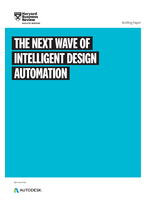Solar America Board analyzes impact of net energy metering.
Share:
Press Release Summary:
Report from Solar America Board for Codes and Standards (Solar ABCs), "A Generalized Approach to Assessing the Rate Impacts of Net Energy Metering," presents analysis of impact of net metered solar facilities on non-participating customers' utility rates. Prepared by Jason B. Keyes and Joseph F. Wiedman on behalf of Interstate Renewable Energy Council, Inc., report proposes methodology to value net energy metering (NEM) based on best practices.
Original Press Release:
New Solar ABCs Report Assesses Rate Impact on Net Energy Metering
A new report from The Solar America Board for Codes and Standards (Solar ABCs), A Generalized Approach to Assessing the Rate Impacts of Net Energy Metering, presents a comprehensive analysis of the impact of net metered solar facilities on non-participating customers' utility rates. The report proposes a methodology to value net energy metering (NEM) based on best practices.
The report was prepared by Jason B. Keyes and Joseph F. Wiedman on behalf of the Interstate Renewable Energy Council, Inc.
Net Energy Metering has consistently been identified as a critical component supporting customer investment in renewable distributed generation (DG). Although there are various policy options related to NEM, the basic structure is to allow a utility customer's on-site generation to offset the customer's load and deliver any excess electricity to the utility in exchange for an equal amount of electricity from the utility at a later time. To promote opportunities for customers to invest in DG, forty-three states, the District of Columbia, and Puerto Rico have implemented different NEM programs. Increasing interest in NEM programs has come at a particularly important juncture in the development of the solar industry as module prices declined markedly in 2009-2011. This decline in prices resulted in increased consumer interest in solar energy despite the economic climate. However, while many NEM programs in this three-year period broadened in scope, the effectiveness of programs continued to vary widely among states.
"NEM is one of the foundations supporting the remarkable growth in solar energy over the last decade," said Joseph Wiedman, co-author of the report. "This Report is designed to provide all stakeholders with tools necessary to assess the costs and benefits of NEM programs so that decisions concerning NEM policy can be based on solid data."
For three decades, IREC has worked with a diverse group of stakeholders in 35 states to develop and implement best practices in net metering and interconnection. Keyes & Fox, LLP., well-known for its long-standing expertise in connecting to the grid issues, has written IREC's model rules for net metering, interconnection procedures, and community renewables. In 2011, IREC, represented by Keyes & Fox, participated in 19 state utility commission dockets addressing net metering and interconnection. "As we start out 2012, thoughtful reports like this one expand market opportunities for solar PV by providing analytical tools to help make informed decisions about net metering policy," said Jane Weissman, IREC's Executive Director.
The Solar ABCs centered this report on the impact of net-metered solar facilities because solar facilities comprise the majority of net-metered generation. The report does not address economic impacts, environmental impacts, or impacts on participating customers investing in distributed generation resources. The report does include an analysis of the methodology used to determine rate impacts but does not undertake a review of any particular state renewable energy program. A one-page summary, as well as the full report, are available for download on the Solar ABCs website.
About Solar ABCs
The Solar America Board for Codes and Standards (Solar ABCs) is a collaborative effort among experts to formally gather and prioritize input from the broad spectrum of solar photovoltaic stakeholders including policymakers, manufacturers, installers, and consumers resulting in coordinated recommendations to codes and standards making bodies for existing and new solar technologies. The U.S. Department of Energy funds Solar ABCs as part of its commitment to facilitate widespread adoption of safe, reliable, and cost-effective solar technologies. For more information, visit www.solarabcs.org
About IREC
The Interstate Renewable Energy Council, Inc., (IREC) is a non-profit organization accelerating the use of renewable energy since 1982. IREC's programs and policies lead to easier, more affordable connection to the utility grid, fair credit for renewable energy produced; best practices for states, municipalities, utilities and industry; and quality assessment for the growing clean energy workforce through the credentialing of trainers and training programs. For more information, visit www.irecusa.org.




